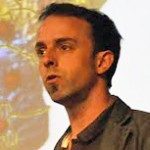Présentation
Deciphering the impact of Plasmodium/Trypanosoma co-infections on the vectorial capacity of Anopheles mosquitoes.
Malaria and African trypanosomiasis (AT), also known as sleeping sickness in humans and Nagana in cattle, are two parasitic diseases prevalent in African tropics. Both diseases are caused by parasitic protozoa of the genus Plasmodium for malaria and Trypanosoma for AT. These parasites are transmitted to humans and other mammals by the bite of blood-feeding insect vectors: the adult female Anopheles mosquito for Plasmodium and the adult male and female tsetse flies (or Glossina) for Trypanosoma.
In some areas of sub-Saharan Africa, these two parasites are sympatrically transmitted due the presence of both insect vectors in the same ecological zones. Hence, in these areas, a fly or a mosquito could bite host reservoirs carrying Trypanosoma and/or Plasmodium. In such scenarios, insects have to cope with both parasites simultaneously or consecutively. For this project we will mainly focus on Anopheles, due to the higher impact of malaria on public health and to the technical limitations of the Glossina model.
The current project aims at understanding how the ingestion of the two parasites could impact the development and the transmission of Plasmodium by Anopheles. In addition a field component of this project will provide the necessary data to refine, and possibly tackle differently the risk of Plasmodium transmission in co-endemic areas, where others microorganisms such as Trypanosoma are sympatric.
Laboratory strategy (France):
In both concomitant and successive scenarios of co-infection, we will profile the Anopheles gambiae immune response against Trypanosoma, and evaluate how this could impact the development, and thus the transmission, of the Plasmodium parasite. In parallel, we will also assess whether mammalian host immune factors directed against one parasite species could impact the development of the other parasite species in Anopheles. We will then mainly decipher the mechanisms underlying the modulation of the insect immune response induced by the presence of the second parasite species, using a transcriptomic approach to identify mosquito factors modulated by the presence of Trypanosoma. These factors will be then functionally tested to validate their impact in the development of Plasmodium (in both mono-infected and co-infected backgrounds).
Field strategy (Senegal):
The study site will be in six villages, three with high and three with low rates of malaria transmission, in the Kedougou region (SE Senegal) where animal AT (AAT) is prevalent. The selection of the villages is based on a 5-year data samples related to human malaria prevalence in Kedougou. One selected village with high and one with low rate of malaria transmission will be treated for AAT during the 2 year of the study. In addition, villages will be surveyed for human Plasmodium prevalence, and for Trypanosoma in animals (cattle and goats). In parallel Anopheles will be sampled in different seasons and their infection status checked by PCR. These results will be compared to those obtained in the lab, in order to possibly correlate the malaria infection prevalence with the incidence rate of animal AT during the seasonal transmission.




